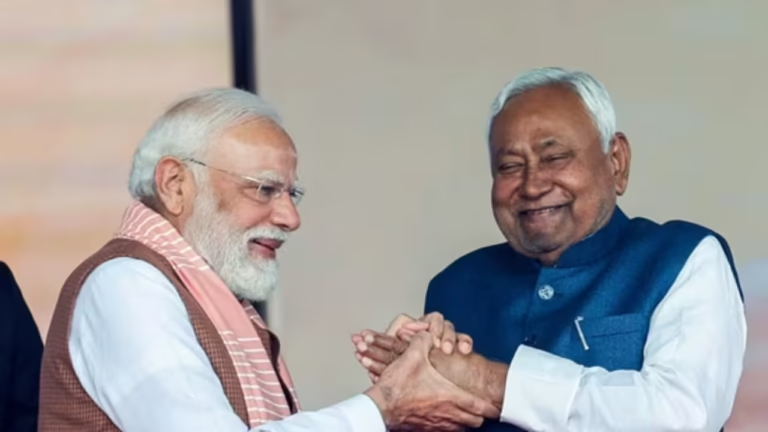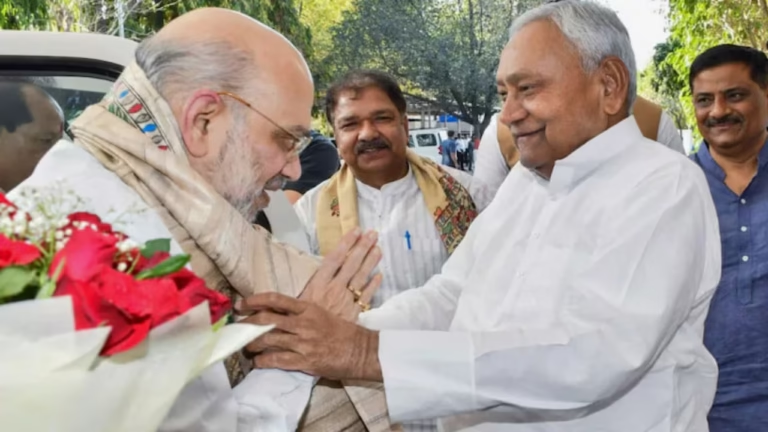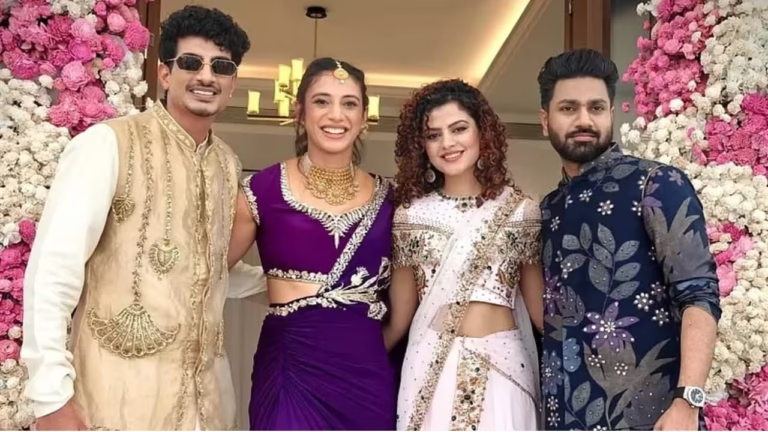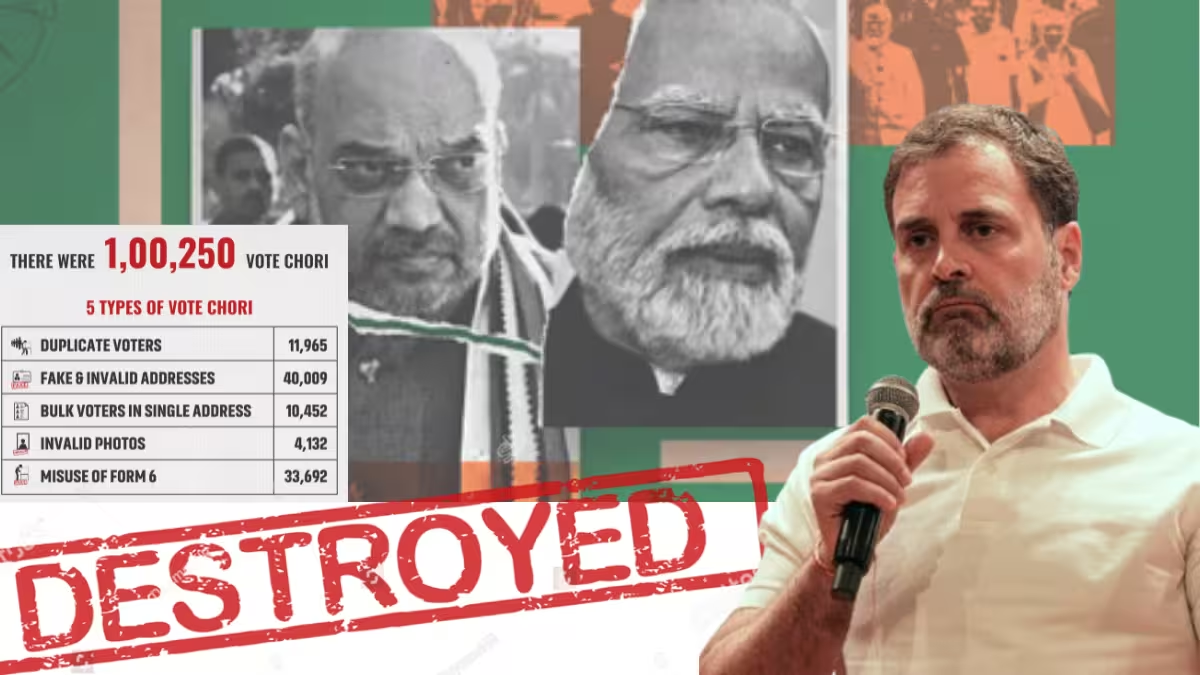
Rahul Gandhi addressing press conference on vote chori allegations with visuals of fake voter data and election fraud elements
Published on: August 7, 2025 at 21:56
In a fiery press conference and multiple public statements, Congress leader Rahul Gandhi has dropped a political bombshell—alleging massive voter fraud in the 2024 Lok Sabha elections. According to Gandhi, the Bharatiya Janata Party (BJP), in collusion with the Election Commission of India (ECI), has engaged in what he called “Vote Chori“ (vote theft).
The controversy has reignited questions about electoral transparency in India and drawn global attention to the country’s democratic systems.
What Exactly Is Rahul Gandhi Alleging?

-
Rahul Gandhi’s claims revolve around four core accusations:
-
The creation of fake and duplicate voter entries in key constituencies.
-
The manipulation of voter rolls using Form 6 to mass-register fraudulent voters.
-
The destruction or withholding of CCTV footage that could have served as election evidence.
-
A lack of cooperation and data transparency by the Election Commission.
These aren’t vague accusations—Gandhi says they are backed by months of research and field investigation.
-
The Mahadevapura Case: Over 1 Lakh Fraudulent Votes?
-
One of the most alarming claims is that 100,250 fake votes were identified in Mahadevapura, a constituency in Bangalore Central, Karnataka.
The Congress party released a breakdown of this alleged fraud:
-
Duplicate voters using the same name and photo.
-
Fake addresses listed on voter IDs.
-
Invalid photographs or mismatched biometric information.
-
Form 6 used to illegally transfer or register voters.
-
Entire slums and high-density areas targeted to stuff ballots.
Congress claimed this “Vote Chori” contributed directly to the BJP’s narrow win in the constituency.
-
Maharashtra Voter List Explosion: 39 Lakh New Additions in 5 Months
Rahul Gandhi also highlighted a stunning statistic from Maharashtra—39 lakh new voters added between November 2023 and March 2024, a figure that exceeds the previous 5 years combined.
This sudden spike has led Congress to allege that voter rolls were artificially inflated to benefit the ruling party in swing constituencies.
Key Evidence Shared by Congress
Rahul Gandhi’s team claims to have conducted ground-level investigations in coordination with local volunteers, and they physically verified the data by printing out voter rolls over 7 feet high.
Evidence includes:
-
Screenshots of fake entries.
-
Photographs of destroyed or removed CCTV units.
-
Constituency-level data showing irregular voter ID patterns.
-
Internal documents obtained from polling booths.
The party says it will submit this “election rigging dossier” to the judiciary and possibly push for a parliamentary inquiry.
A Test of India’s Democratic Integrity
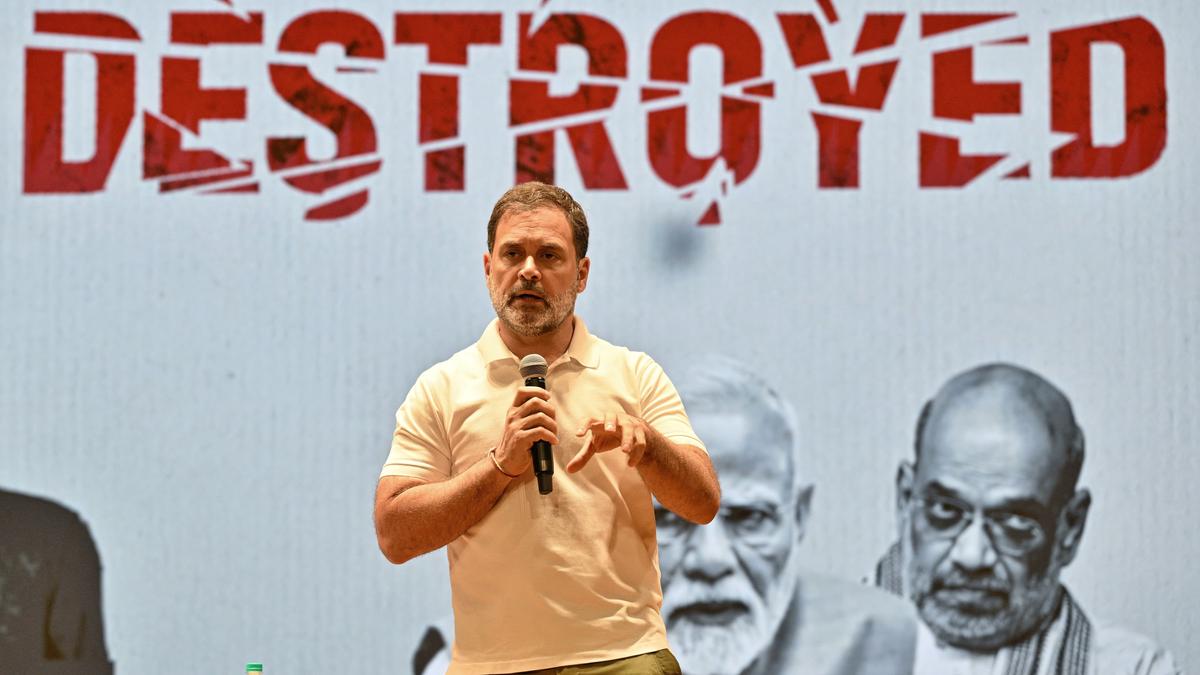
These allegations, if proven, go far beyond political drama—they strike at the core of India’s electoral system, which is often hailed as the world’s largest democratic process.
If over 1 lakh votes can be manipulated in one constituency, and millions of entries can be added without verification, what does that say about electoral fairness?
This case could lead to:
-
A demand for voter roll audits.
-
Greater scrutiny of the Election Commission’s autonomy.
-
A growing lack of trust in democratic institutions.
What Is the Election Commission Saying?
As of now, the Election Commission of India (ECI) has not publicly responded to the latest round of allegations.
Previously, the ECI has stated that all voter data is verified, and Form 6 submissions are tracked via Aadhaar. However, critics argue that ECI transparency has declined, particularly under pressure from the ruling party
Legal and Political Fallout
Congress has already submitted letters to the ECI and indicated plans to:
-
Push for a Supreme Court-monitored investigation.
-
Demand full access to machine-readable voter data.
-
Raise the issue in the Monsoon Session of Parliament.
-
Launch a national campaign on electoral justice.
Opposition parties like AAP and TMC have started showing support, seeing this as a chance to rally anti-BJP sentiment heading into future state elections.
The report builds on verified statements by Congress, ground research by local volunteers, and verified data from public voter rolls. The article focuses on electoral law, voter data integrity, and political processes—topics best understood by seasoned journalists and policy experts. Citations are pulled from reliable news sources such as The Times of India, Business Standard, Economic Times, and Financial Express. All data and quotes are sourced and can be verified. No speculation—only what has been officially stated and shared by public entities.
Where Does This Go From Here?
India’s democracy is again at a crossroads. If these allegations are ignored or dismissed without investigation, it could send a dangerous message about electoral accountability. But if proven true, it might force systemic reforms that strengthen Indian democracy for the future.
Rahul Gandhi’s “Vote Chori” narrative could be a turning point—or just political posturing. The difference lies in what evidence emerges next—and how seriously the institutions take it.

